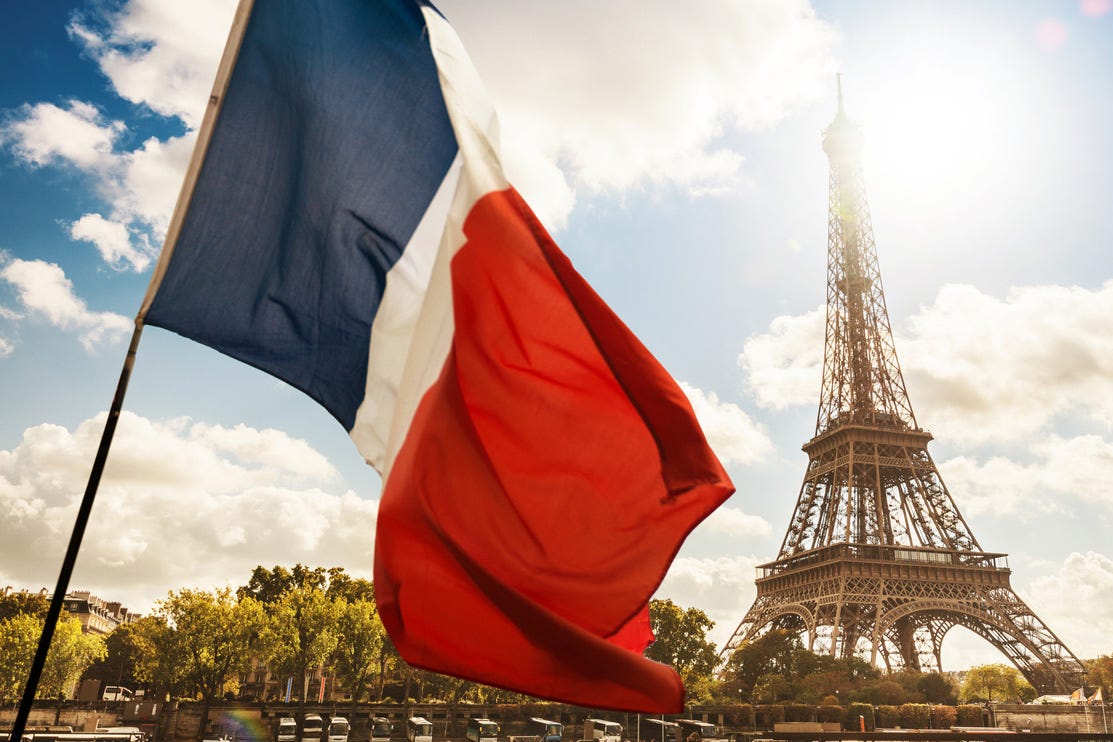
Today is Bastille Day, or Fête nationale, and like our Independence Day on July 4, July 14 marks and celebrates the revolutionary origins of France. On this day in 1789, revolutionary forces stormed the Bastille to free the remaining political prisoners still held in this famously expensive prison, as well as Fête de la Fédération, which celebrated the unity of the French people, on July 14, 1790.
Written in 1792, La Marseillaise was written by the French army officer, Claude Joseph Rouget de Lisle, after the declaration of war by France against Austria, and was originally titled “Chant de guerre pour l’Armée du Rhin.” It was renamed La Marseillaise after army volunteers from Marseille were heard singing this song while marching all the way to the capital, Paris. It was made the national anthem in 1795.
Much like the irony of our annual Independence Day performances of Tchaikovsky’s 1812 Overture, which commemorates the successful Russian defense against Napoleon’s invading Grande Armée in 1812, the lyrics to La Marseillaise really have nothing to do with the French Revolution, but with protecting the country from Austrian invasion. There have been occasional attempts to change the lyrics, but they’ve always been unsuccessful, at best.
Allons enfants de la Patrie, Le jour de gloire est arrivé! Contre nous de la tyrannie L’étendard sanglant est levé, (bis) Entendez-vous dans les campagnes Mugir ces féroces soldats? Ils viennent jusque dans vos bras Égorger vos fils, vos compagnes!
Aux armes, citoyens, Formez vos bataillons, Marchons, marchons! Qu’un sang impur Abreuve nos sillons!
Arise, children of the Fatherland, The day of glory has arrived! Against us, tyranny’s Bloody standard is raised, (repeat) Do you hear, in the countryside, The roar of those ferocious soldiers? They’re coming right into your arms To cut the throats of your sons, your women!
To arms, citizens, Form your battalions, Let’s march, let’s march! Let an impure blood Water our furrows!
La Marseillaise has been used both overtly and covertly by many composers, but one of the most stirring examples is from the 1942 film Casablanca.
And the American soprano, Jessye Norman, was chosen to sing La Marseillaise for the 200th anniversary of the French Revolution in 1989.
The most popular French performance from the 1989 Bicentenary was sung by Mireille Mathieu.
And, of course, you can hear it at the beginning of the The Beatles’ 1967 hit, All You Need Is Love.
One of the greatest arrangements of La Marseillaise was made by Hector Berlioz in 1830 for soloist, chorus, and orchestra.
Franz Liszt made a piano transcription of Berlioz’s version in the 1870's.
For me, though, the most stirring renditions are those that have been sung enmasse, by the people, for the people, and of the people.
